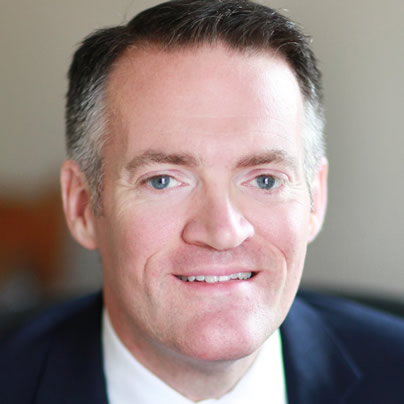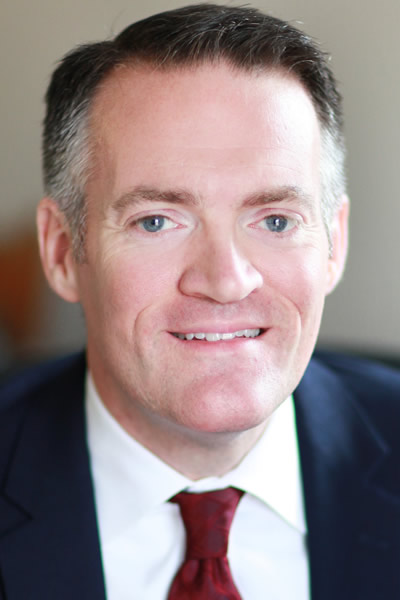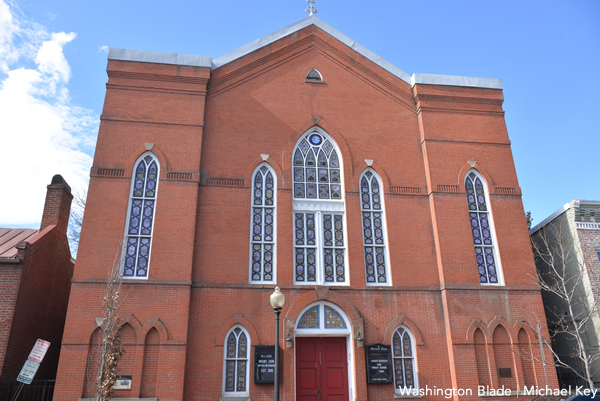News
W.Va. voters elect first openly gay state lawmaker
Stephen Skinner will represent portions of Jefferson County in the West Virginia House of Delegates


West Virginia Del. Stephen Skinner (D-Shepherdstown) is the first openly gay person elected to the state legislature. (Photo courtesy of Stephen Skinner)
A West Virginia lawyer on Tuesday became the first openly gay person elected to his state’s legislature.
Stephen Skinner will represent Harper’s Ferry, Shepherdstown and surrounding areas of Jefferson County in the far Eastern Panhandle in the West Virginia House of Delegates after defeating Republican Elliot Simon.
“It feels great,” Skinner told the Washington Blade on Thursday as he discussed his election. “Certainly we can recognize it is historic, but we also must remember that it’s about serving the constituents. This is about getting the votes from folks who have the same everyday problems as anybody.”
Skinner is among the hundreds of openly LGBT candidates across the country who won their respective campaigns on Tuesday. These include gay Florida state Rep.-elect Joe Saunders and Stacie Laughton, a Nashua, N.H., selectman who on Tuesday became the first openly transgender person elected to state office in the U.S. after voters elected her to the New Hampshire House of Representatives.
Skinner, who founded Fairness West Virginia, a statewide LGBT advocacy group, told the Blade there were what he described as “some rumblings about” his homosexuality “on the edges” during the campaign. He cited lesbian Wisconsin Congresswoman Tammy Baldwin’s historic election to the U.S. Senate on Tuesday as proof that voters are increasingly able to look beyond a candidate’s sexual orientation.
“We’re at a point in time at least in this part of West Virginia where if my opponent or outside forces had attempted to make it an issue, it would have backfired,” said Skinner.
Joe Racalto, executive director of Fairness West Virginia, applauded Skinner’s election. His organization will honor him, among others at its annual gala in Charleston, the state capital, on Saturday.
“History was made today in West Virginia,” said Racalto in a statement late on Nov. 6. “Delegate-Elect Skinner is proof that people should be judged by their ideas and vision, not who they love. West Virginians should be applauded for breaking this important barrier.”
Coy A. Flowers, president of Fairness West Virginia’s Board of Directors, agreed.
“On behalf of the nearly 40,000 West Virginians who are lesbian, gay, bisexual or transgender and for the over 3,000 same sex couples who are raising children in this state, we are ecstatic that our community finally has a true seat at the table in the West Virginia Legislature,” said Flowers. “Finally, our legislative elected officials will be held accountable on issues of fairness and equality for all our state’s citizens.”
Skinner noted the economy and jobs were the top issues among his soon-to-be constituents during the campaign. He also said health care and increased traffic associated with an influx of new residents who often commute into the nation’s capital are also a concern.
“We’re just 65 miles up the Potomac [from D.C.,]” he said. “Development’s a big issue, but we also have gambling is an enormous issue because we derive a lot of our revenue from the Charles Town races. In my district we have two MARC train stations, so we have lots of commuters. Lots of folks work on the Hill and live out here. We’re constantly dealing with the issues of being a community that still retains a lot of its rural character, but is very connected into the D.C. metro area.”
Skinner added the district’s geographical isolation from Charleston and other parts of the state remains an issue.
“We feel very disconnected from the state capital,” he said, noting it takes him less time to drive to Manhattan and five other state capitals than it does to Charleston. “The issues in the rest of the state aren’t necessarily our issues — and vice versa. But we’re experiencing tremendous population growth and it’s sometimes from within in the state and for a lot of people they’re simply living here because it’s affordable housing and a great place to live.”
Home prices in Jefferson County are the highest per capita in West Virginia, while its population is statistically the most educated in the state. Skinner said there are also a lot of “folks who are forward thinking” in Jefferson County.
“We have to make sure the legislators in the Eastern Panhandle are making sure that we are able to have the data to show to the rest of the state the difference, but also that we are generating a huge amount of the revenues for the state,” he said. “We need to make sure that we are getting the correct amount back.”
Skinner said he and other LGBT advocates will continue to push for a bill that would add sexual orientation to West Virginia’s non-discrimination law. He noted he will also work with his soon-to-be colleagues in Charleston on the implementation of expanded Medicare coverage under the health care reform law President Obama signed in 2010.
West Virginia is also about to implement what Skinner described as an “enormous” reform of the state’s education system.
“Having more autonomy and less centralization in a state like West Virginia is going to be pretty important for our future success,” he said.
National
United Methodist Church removes 40-year ban on gay clergy
Delegates also voted for other LGBTQ-inclusive measures

The United Methodist Church on Wednesday removed a ban on gay clergy that was in place for more than 40 years, voting to also allow LGBTQ weddings and end prohibitions on the use of United Methodist funds to “promote acceptance of homosexuality.”
Overturning the policy forbidding the church from ordaining “self-avowed practicing homosexuals” effectively formalized a practice that had caused an estimated quarter of U.S. congregations to leave the church.
The New York Times notes additional votes “affirming L.G.B.T.Q. inclusion in the church are expected before the meeting adjourns on Friday.” Wednesday’s measures were passed overwhelmingly and without debate. Delegates met in Charlotte, N.C.
According to the church’s General Council on Finance and Administration, there were 5,424,175 members in the U.S. in 2022 with an estimated global membership approaching 10 million.
The Times notes that other matters of business last week included a “regionalization” plan, which gave autonomy to different regions such that they can establish their own rules on matters including issues of sexuality — about which international factions are likelier to have more conservative views.
Federal Government
Republican state AGs challenge Biden administration’s revised Title IX policies
New rules protect LGBTQ students from discrimination

Four Republicans state attorneys general have sued the Biden-Harris administration over the U.S. Department of Education’s new Title IX policies that were finalized April 19 and carry anti-discrimination protections for LGBTQ students in public schools.
The lawsuit filed on Tuesday, which is led by the attorneys general of Kentucky and Tennessee, follows a pair of legal challenges from nine Republican states on Monday — all contesting the administration’s interpretation that sex-based discrimination under the statute also covers that which is based on the victim’s sexual orientation or gender identity.
The administration also rolled back Trump-era rules governing how schools must respond to allegations of sexual harassment and sexual assault, which were widely perceived as biased in favor of the interests of those who are accused.
“The U.S. Department of Education has no authority to let boys into girls’ locker rooms,” Tennessee Attorney General Jonathan Skrmetti said in a statement. “In the decades since its adoption, Title IX has been universally understood to protect the privacy and safety of women in private spaces like locker rooms and bathrooms.”
“Florida is suing the Biden administration over its unlawful Title IX changes,” Florida Gov. Ron DeSantis wrote on social media. “Biden is abusing his constitutional authority to push an ideological agenda that harms women and girls and conflicts with the truth.”
After announcing the finalization of the department’s new rules, Education Secretary Miguel Cardona told reporters, “These regulations make it crystal clear that everyone can access schools that are safe, welcoming and that respect their rights.”
The new rule does not provide guidance on whether schools must allow transgender students to play on sports teams corresponding with their gender identity to comply with Title IX, a question that is addressed in a separate rule proposed by the agency in April.
LGBTQ and civil rights advocacy groups praised the changes. Lambda Legal issued a statement arguing the new rule “protects LGBTQ+ students from discrimination and other abuse,” adding that it “appropriately underscores that Title IX’s civil rights protections clearly cover LGBTQ+ students, as well as survivors and pregnant and parenting students across race and gender identity.”
Rehoboth Beach
Former CAMP Rehoboth official sentenced to nine months in prison
Salvator Seeley pleaded guilty to felony theft charge for embezzlement

Salvator “Sal” Seeley, who served as an official with the Rehoboth Beach, Del., CAMP Rehoboth LGBTQ community center for 20 years, was sentenced on April 5 by a Sussex County Superior Court judge to nine months in prison and to pay $176,000 in restitution to the organization.
The sentencing took place about five weeks after Seeley pleaded guilty to a charge of Theft in Excess of $50,000 for allegedly embezzling funds from CAMP Rehoboth, a spokesperson for the Delaware Department of Justice told the Washington Blade.
Seeley’s guilty plea came shortly after a grand jury, at the request of prosecutors, indicted him on the felony theft charge following an investigation that found he had embezzled at least $176,000 from the nonprofit LGBTQ organization.
“Salvatore C. Seeley, between the 27th day of February 2019 and the 7th day of September 2021, in the County of Sussex, State of Delaware, did take property belonging to CAMP Rehoboth, Inc., consisting of United States currency and other miscellaneous property valued at more than $50,000, intending to appropriate the same,” the indictment states.
“The State recommended a sentence of two years of incarceration based on the large-scale theft and the impact to the non-profit organization,” Delaware Department of Justice spokesperson Caroline Harrison told the Blade in a statement.
“The defense cited Seeley’s lack of a record and gambling addiction in arguing for a probationary sentence,” the statement says. “Seeley was sentenced in Superior Court to a nine-month prison term and to pay a total of $176,000 in restitution for the stolen funds,” Harrison says in the statement.
Neither Seeley nor his attorney could immediately be reached for comment.
At the time of Seeley’s indictment in February, CAMP Rehoboth released a statement saying it first discovered “financial irregularities” within the organization on Sept. 7, 2021, “and took immediate action and notified state authorities.” The statement says this resulted in the investigation of Seeley by the state Department of Justice as well as an internal investigation by CAMP Rehoboth to review its “financial control policies” that led to an updating of those policies.
“As we have communicated from day one, CAMP Rehoboth has fully cooperated with law enforcement,” the statement continues. “At its request, we did not speak publicly about the investigation while it was ongoing for fear it would jeopardize its integrity,” according to the statement. “This was extremely difficult given our commitment to transparency with the community about day-to-day operations during the recent leadership transition.”
The statement was referring to Kim Leisey, who began her job as CAMP Rehoboth’s new executive director in July of 2023, while the Seeley investigation had yet to be completed, following the organization’s process of searching for a new director. It says Seeley left his job as Health and Wellness Director of CAMP Rehoboth in September of 2021 after working for the organization for more than 20 years.
“Mr. Seeley’s actions are a deep betrayal to not only CAMP Rehoboth but also the entire community we serve,” the statement says.

















